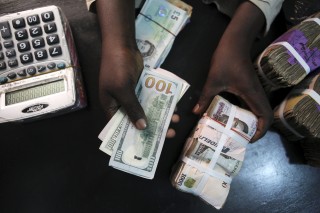Since the global oil price crash in 2014, Nigeria has been one of the hardest-hit economies due to its over-dependence on oil as its only source of revenue. China’s economic slowdown, as well as the United States’ rate hike, also affected its economy adversely. As a result, Nigeria’s economic growth has declined dramatically, with its currency falling to an all-time low. Investors are pulling out regularly as most of them are scared to leave their investments in the country, thanks to new monetary policies. The Central Bank of Nigeria put in stringent policies to help save the naira from falling but they backfired.
However, the story above seems to be changing as the CBN, which once showed that its decisions were not independent of the Federal government, has taken a new turn. The CBN Monetary Policy Committee recently took a decision which could actually boost investors’ confidence when it decided to retain the interest rate. This decision was made despite the call of the Minister of Finance, Kemi Adeosun, to cut interest rates. This shows that the CBN is beginning to implement well thought out policies as opposed to the flip-flopping policies which cost the country dearly.
Below is the Ventures Africa Weekly Economic Index (from 16 till 23 September 2016), which gives you a glimpse into the recent activities in Nigeria’s economy as well as changes that could affect the economy:
Did the price of the crude oil change?

According to OPEC weekly basket price between September 16 and September 23, 2016, the price of crude oil increased considerably from $41.74 per barrel to $42.89 per barrel. This rise in the price of crude oil was stoked by speculations that OPEC members will agree to a production ceiling during a meeting scheduled for the 26th to 28th of September 2016.
This increase was also due to recent data from Baker Hughes which revealed that the number of active U.S. rigs drilling for oil increased by 2 to 418 rigs this week as well as the US Federal Reserve’s decision on interest rate.
How low is Nigeria’s external reserve?

For the week under review, Nigeria’s external reserve declined by $92 million to $24.87 billion as of September 20th, 2016. The pressure on the reserve may be due to the fluctuating oil price and low liquidity issues at the interbank forex market. It seems unlikely that the reserve would increase in the short-term. According to the Centre for the Study of the Economies of Africa, the dwindling reserve dampens the prospect of the appreciation of the naira in the near term. But, the anticipated rise in crude oil production by October, and the ongoing efforts of the government to improve production and export provides some positive outlook on the nation’s external reserve.
What was the outcome of the two days CBN’s Monetary Policy Committee meeting?

In a two-day meeting which took place at the CBN Head office in Abuja, the Central Bank of Nigeria’s Monetary Policy Committee agreed to retain the monetary policy rate (MPR) at 14 percent as well as the Cash Reserve Ratio (CRR) at 22.5 percent. The Liquidity Ratio was also left at 30 percent. The MPR is the rate which sets the lending rate for banks and businesses, the CRR, specifies the minimum fraction of customers’ total deposits commercial banks could hold as reserves either in cash or deposits with the CBN, and the liquidity ratio sets the limits for banks repayment of short-term creditors out of their total cash.
What happened to the Naira this week?

The naira depreciated against the dollar at the parallel market to 439 on Friday 23rd September 2016, down from 420 on Friday 16th September 2016, as persistent dollar shortage continues to weigh on the economy. The major fall in the naira came a day after the Central Bank of Nigeria’s Monetary Policy Committee retained the benchmark lending rate at 14 percent.
Did the Nigerian Stock Market perform better this week?

Nigerian stocks closed trading on a positive note as the All-Share Index gained 0.29 percent. At the close of trading on Friday, 23rd September 2016, market capitalization was N9.7 trillion. The volume of shares traded as of Friday was 265 million units, while the NSE All-Share Index was up 0.29 percent to 28,247.11. The three top gainers are 7UP, OKOMUOIL and CADBURY and top losers are BETAGLAS, NNFM, and CAVERTON.








